Physical Address
304 North Cardinal St.
Dorchester Center, MA 02124
Physical Address
304 North Cardinal St.
Dorchester Center, MA 02124
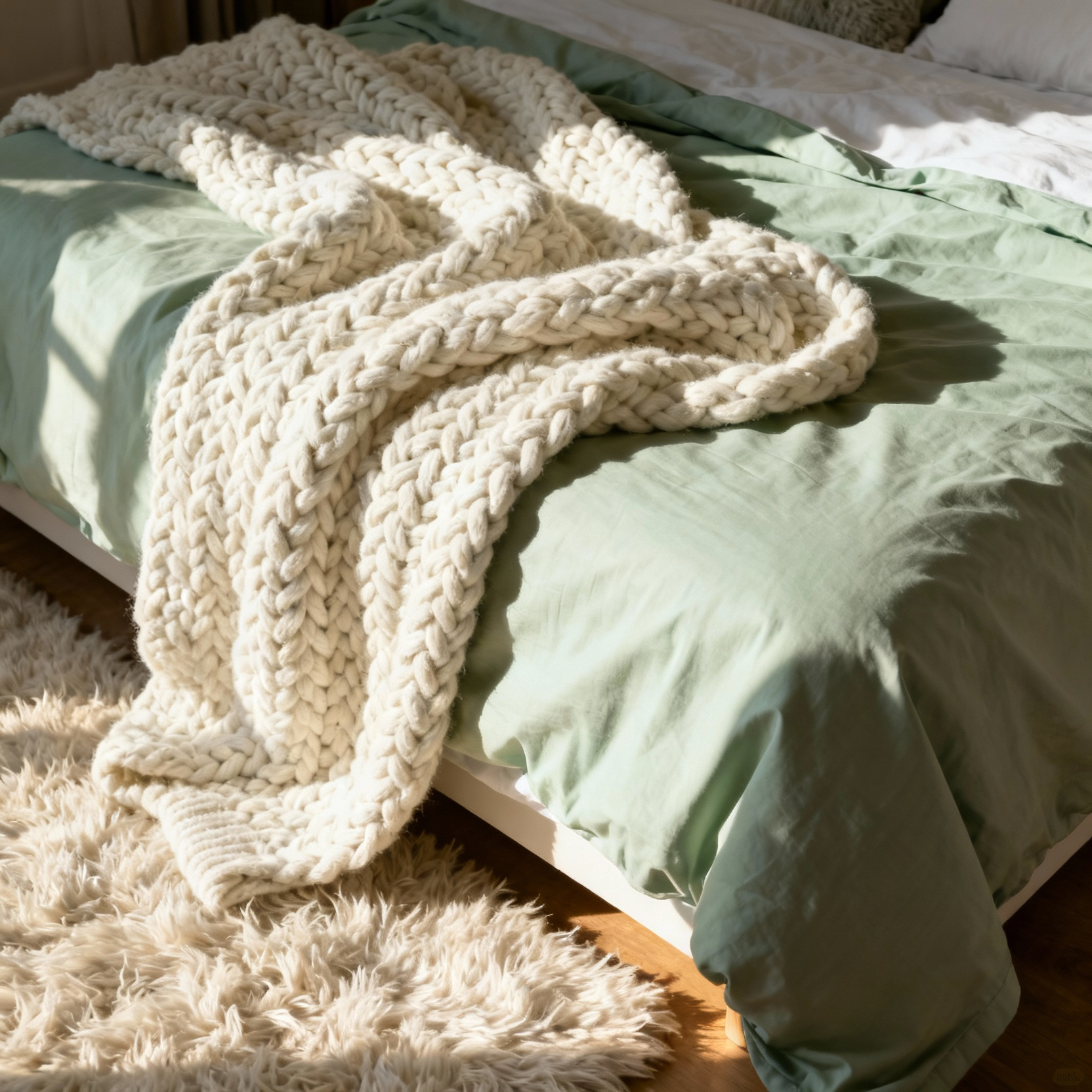
Discover 7 expert-led tips on cozy bedroom decorations inspired by Scandinavian hygge. Create a warm, minimalist sanctuary with natural textures and intentional design.
I was sitting by my window the other day, watching the fine Swedish rain turn the silver birch trees a darker shade of grey. I had a cup of coffee, a warm wool blanket over my knees, and nothing to do but watch the weather. That quiet feeling of complete contentment—the deep sense that everything is exactly as it should be in this small corner of the world—is exactly what separates an intentionally designed space from an accidentally accumulated one. It is the heart of hygge, and it is something we can thoughtfully create in our own homes.
Crafting a bedroom that offers this deep comfort is not about adding more things. It is about choosing the right things. In my years of working with Nordic interior design, I’ve learned that true coziness comes from a harmony of light, texture, and intention. It’s a space that calms the mind and invites rest. Let’s explore seven foundational cozy bedroom decorations that achieve this—not as a list of items to buy, but as a philosophy for creating your personal sanctuary.
The fastest way to invite warmth into a room is through touch. In Scandinavia, where we spend so much time indoors, the materials we surround ourselves with are incredibly important. Forget synthetic fabrics that feel cold and impersonal. The goal is to layer natural, breathable materials that feel good against the skin.

Start with your bedding. Stonewashed linen is a beautiful choice; it has a lovely, slightly rumpled texture that feels both relaxed and luxurious, and it only gets softer with time. Or consider organic cotton percale for its crisp, cool feel. Then, add layers. A thick wool blanket, perhaps in a chunky cable knit, draped across the foot of the bed is essential. Wool is a remarkable material—it’s breathable, warm, and connects us directly to nature. What I tell my clients seeking warm, minimalist spaces is to think about how these textures will feel at the end of a long day. The simple act of pulling up a heavy wool throw is a comforting ritual in itself.
In the Nordic countries, light is a precious commodity. Our long, dark winters have taught us to master it, to shape it into something that feels like a warm embrace. A single, harsh overhead light is the enemy of coziness. Instead, think of lighting in layers, like a painter adding depth to a canvas.
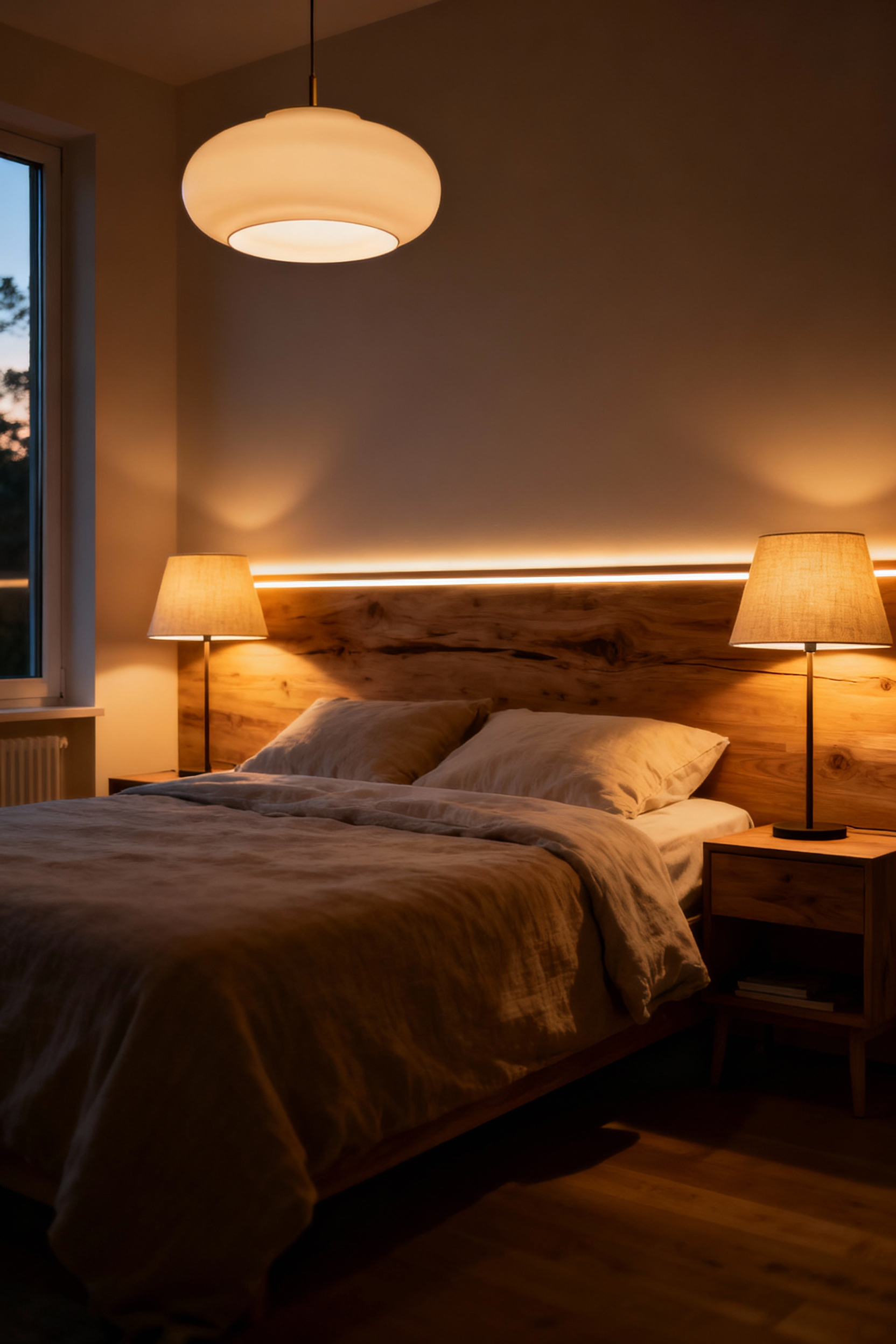
Every bedroom needs at least three points of light. First, ambient light—perhaps a simple pendant with a fabric or paper shade that diffuses a soft, general glow. Second, task light, like an adjustable reading lamp by the bed. And third, accent light. This is the magical layer: a small lamp on a dresser, a few beeswax candles on a safe surface, or even a simple string of warm fairy lights tucked behind a headboard. The key to it all is warmth and control. Use bulbs in the 2700K range, which mimics the gentle color of candlelight, and install dimmers wherever possible. This allows you to tailor the atmosphere from bright and functional to intimately soft, creating a room that responds to your needs and mood.
Minimalism doesn’t have to mean sterile white. In fact, the Scandinavian approach to color is deeply rooted in our natural landscape. Think of the soft greys of coastal stones, the muted greens of a pine forest, the warm whites of birch bark, and the deep, calming blues of a fjord at dusk.
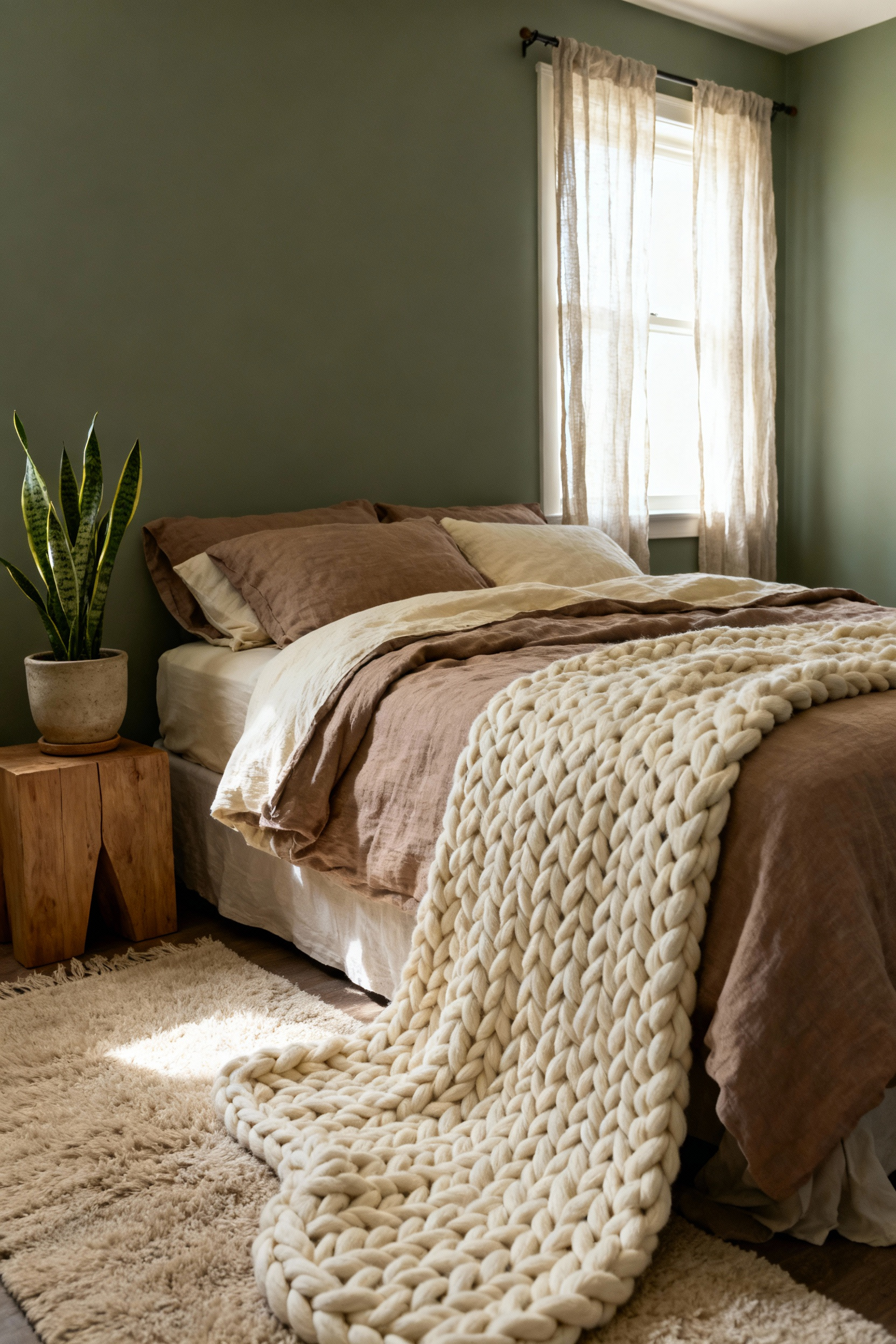
These colors create a serene backdrop that allows textures and light to take center stage. They don’t shout for attention; they whisper. A room painted in a soft, dusty sage green or a warm, earthy greige feels instantly calming because it reflects the peacefulness of the outdoors. This palette allows the eye to rest, reducing the mental “clutter” we are so often bombarded with. In my experience with Scandinavian design principles, a muted palette is the foundation upon which all other cozy elements are built. It creates a quiet canvas for your personal sanctuary.
A connection to the natural world is fundamental to our well-being, and this is a core tenet of Scandinavian design. Simply adding a living plant or two can breathe life and gentle color into your bedroom, purifying the air while providing a sense of organic calm. You don’t need to create an indoor jungle. The principle of lagom—just the right amount—applies here.
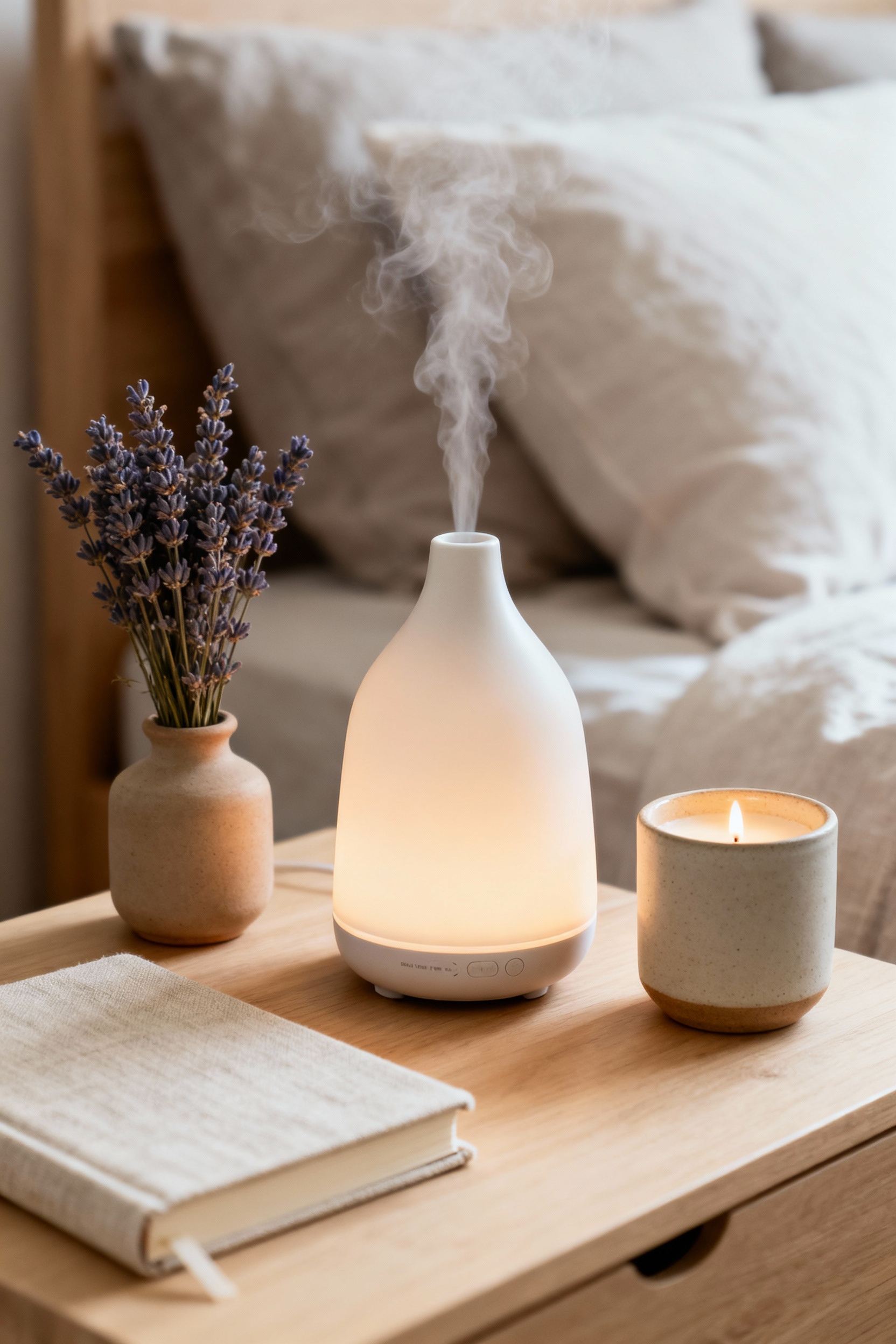
Choose plants that are sculptural and easy to care for, like a snake plant with its strong vertical leaves or a delicate pothos that can trail gracefully from a shelf. House them in simple, beautiful pots made from natural materials like terracotta, ceramic, or concrete. Beyond living plants, you can bring in other natural elements. A branch found on a walk can become a piece of art. A simple glass vase with a few sprigs of eucalyptus can add a subtle, refreshing scent. These small touches serve as constant, quiet reminders of the world outside, grounding us in something real and timeless.
A cozy room is a calm room, and a calm room is one that is free of visual noise. This goes beyond simple tidying. Visual quietude is the art of intentionally curating what you see, ensuring that your surroundings bring you a sense of peace, not a feeling of obligation.
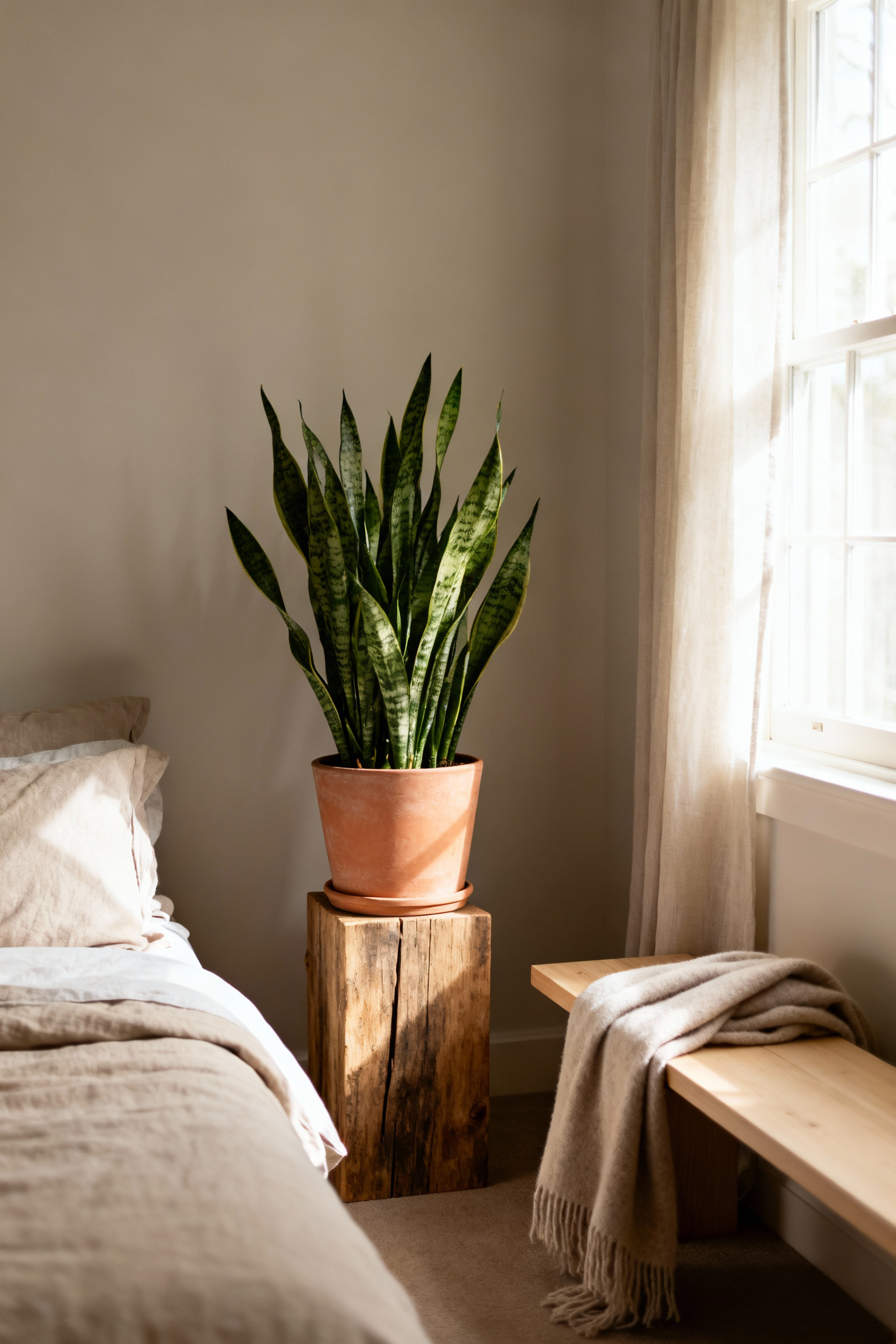
Look around your bedroom and ask yourself what truly needs to be there. Clear surfaces are your friend. A bedside table should hold only the essentials: a lamp, your current book, perhaps a small ceramic dish for jewelry. Everything else should have a home out of sight. I learned this when designing for small city apartments in Stockholm—intelligent, hidden storage is a cornerstone of functional minimalism. Use beautiful woven baskets to hold extra blankets or books. Choose furniture with clean lines that doesn’t overwhelm the space. The goal is to create pockets of “negative space” where your eye—and your mind—can rest.
Every home should have a hyggekrog—a cozy corner dedicated purely to relaxation and comfort. In a bedroom, this is often the perfect place for a reading nook. It doesn’t need to be grand. All it requires is a comfortable chair, good light, and a place to set down a cup of tea.
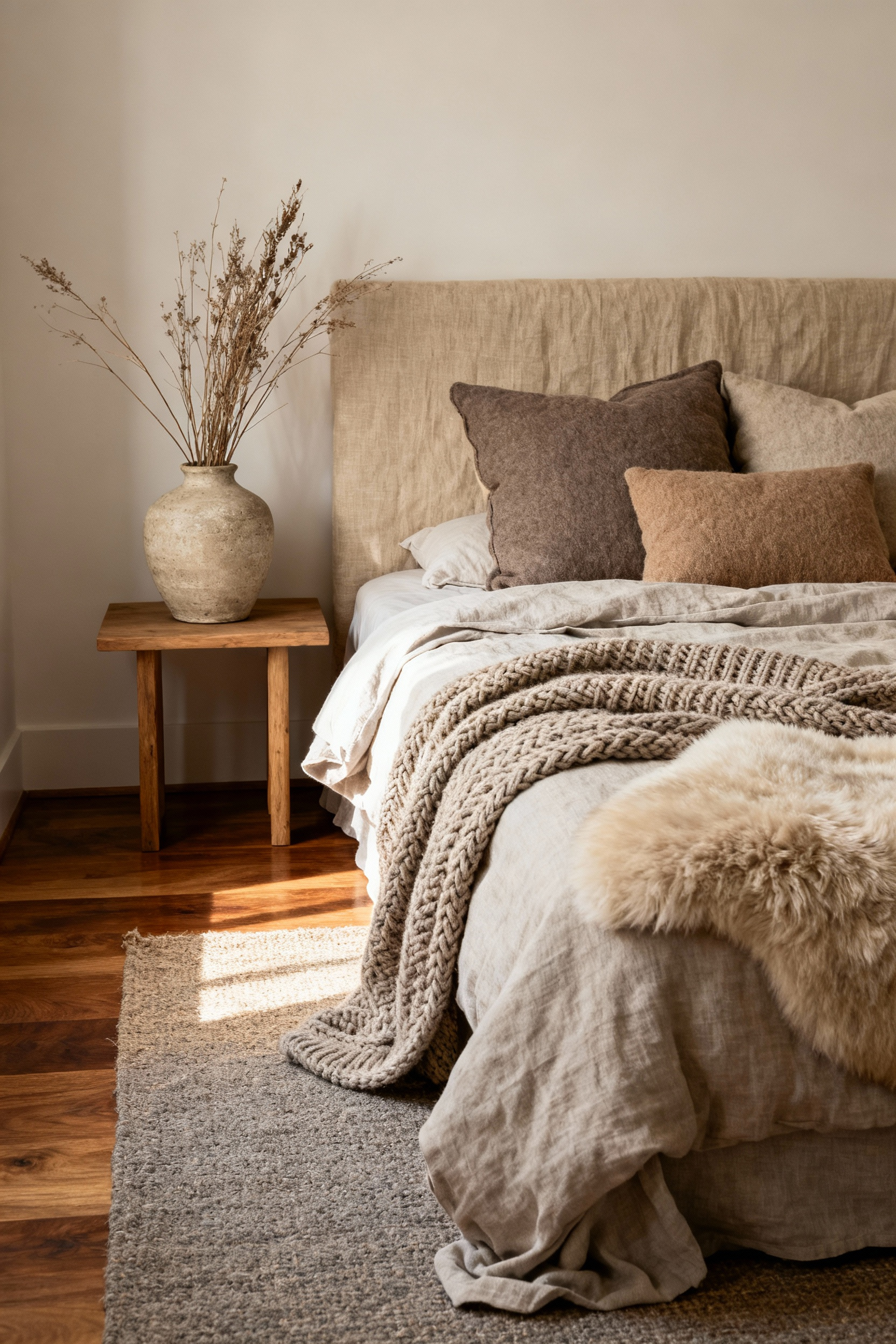
Find a corner of your bedroom, perhaps by a window, and place a comfortable armchair there—one with soft upholstery or draped with a sheepskin throw. Add a small side table and a dedicated floor lamp for reading. This simple act of creating a designated zone for stillness sends a powerful message to your brain: this spot is for winding down. It’s a space with a single purpose—to provide comfort. Having this little sanctuary within your larger sanctuary elevates the entire room, making it a place not just for sleep, but for intentional, soulful rest.
A truly cozy bedroom is a reflection of the person who lives in it. While Scandinavian design values simplicity, it is not about creating a cold, impersonal showroom. The final, most important layer of coziness comes from surrounding yourself with objects that hold personal meaning.
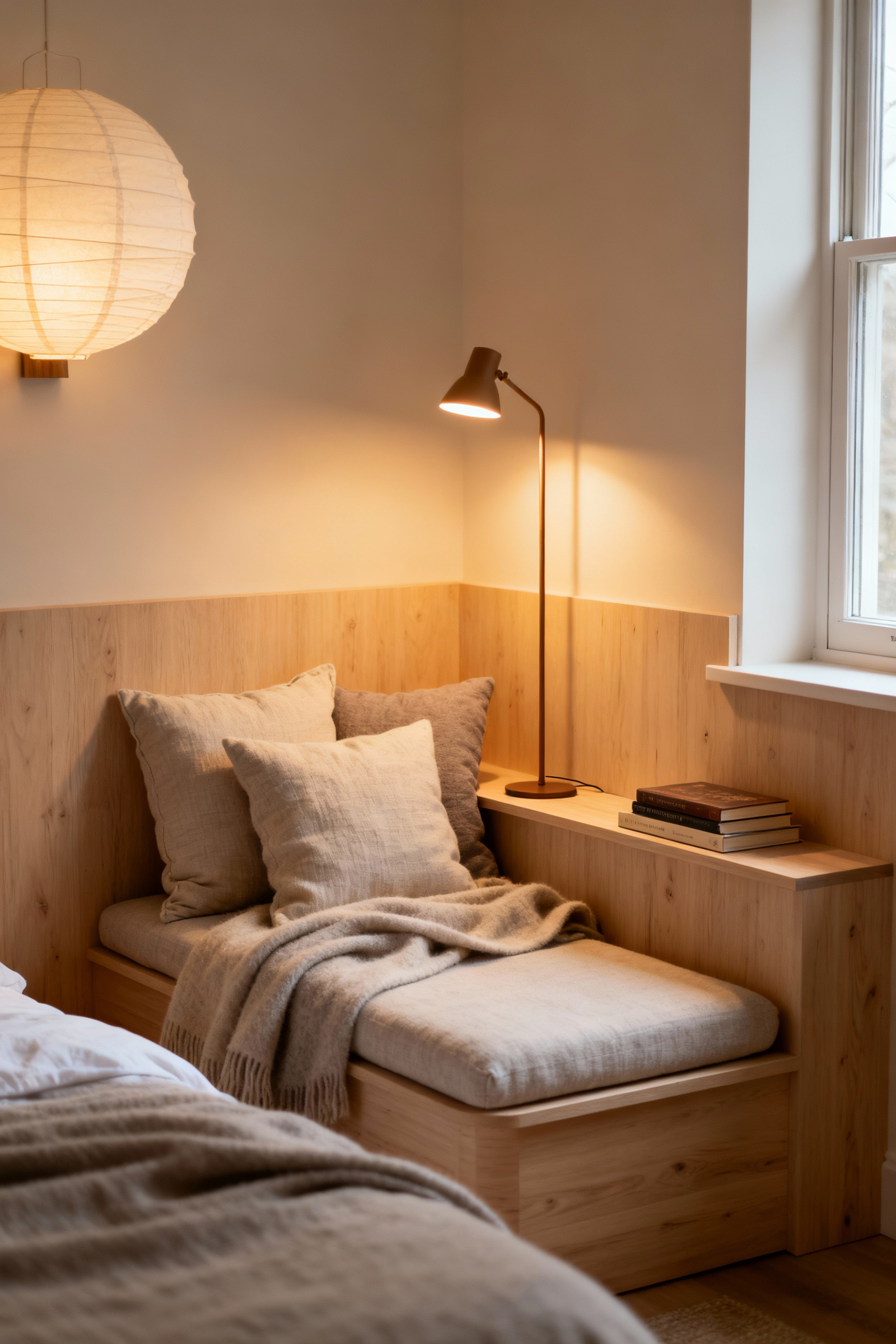
This is not an invitation for clutter. It is about a very deliberate choice. Instead of generic art, hang a single framed photograph from a meaningful trip or a simple abstract print that you truly love. Rather than a collection of trinkets, display a single hand-thrown ceramic vase given to you by a friend or a smooth stone collected from a favorite beach. These objects tell your story. They are imbued with memory and emotion. Placing them thoughtfully in your uncluttered space gives them room to breathe and allows you to appreciate them fully, turning your bedroom from a beautifully designed room into a deeply personal haven.
Creating a cozy bedroom is a quiet, thoughtful process. It’s about building a space, layer by layer, that supports your well-being. As we’ve seen, it begins with the tangible feeling of natural textiles and the soft glow of layered light and expands into a philosophy of mindful living—embracing nature, creating quietude, and cherishing personal meaning. This is the heart of Scandinavian design: not a style to be copied, but a way of living that values comfort, function, and a deep sense of peace. Your bedroom should be the one place in the world where you can truly let go. By making intentional choices, you can craft a sanctuary that not only looks beautiful but feels like a genuine extension of yourself—a warm, welcoming, and deeply restorative retreat from the noise of the world.